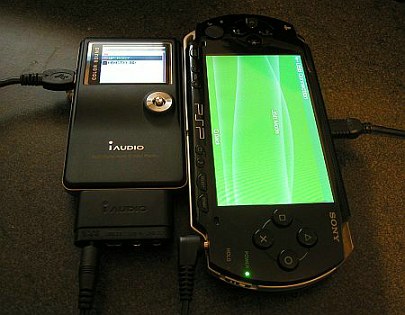
The Playstation Portable is a jack of all trades. It plays music, videos, browses the Internet, and plays games. However, for an increasing number of people, this still isn't enough. With its powerful dual-processor configuration and Memory Stick Pro Duo slot, the PSP is a pocket powerhouse, capable of much more than just gaming and multimedia.
This is where the homebrew community comes in. With some modifications to its system software, the PSP can run 3rd party software, just like an ordinary computer. A massive community has sprung up online that is dedicated to these modifications.
When Sony first released the PSP, it had no restrictions. It was possible to write 3rd party software and install it to a memory stick. The PS2dev community created a homebrew development kit for the new system, and the community of developers began to grow.

After a while, Sony started to realize this was a problem. Although 3rd party utilities and games were harmless, they realized it was possible to run commercial games from the memory stick as well, using homebrew ISO loaders. Sony knew that this could hurt their game sales, so they issued firmware version 2.0, which removed this functionality. In this version of the firmware, and every subsequent release, it is impossible to run anything but UMD disks and official game demos from Sony. While this makes piracy impossible, it also dealt a serious blow to the burgeoning homebrew community.

In late 2005, Homebrew developer Fanjita discovered a tantalizing hole in Grand Theft Auto: Liberty City Stories. By copying a special hacked game save to the memory stick and loading it in GTA, it was possible to purposely crash the PSP, and load custom code! For the first time since the release of firmware 2.00, it was possible to run homebrew code again. At the time, PSPs with firmware 1.50 were in high demand, and supplies were dwindling. Using this software exploit, Fanjita and the Noobz team were able to create a "downgrader" for the current firmware, version 3.40. It became possible to downgrade any PSP, as long as it had nothing higher than 3.40, to the older 1.50 firmware, and thus use it for homebrew once again.

Sony was none too happy about this exploit. They issued a recall on GTA:LCS, and sent new, patched copies to stores. They also began releasing firmware updates in the game disks themselves. Newer games required newer firmwares, and so homebrew users had to choose between a fully functional PSP, or a crippled system that was compatible with newer games. As always, the scene found workarounds, specifically a program called Devhook, but it was confusing and complicated to set up.








No comments:
Post a Comment